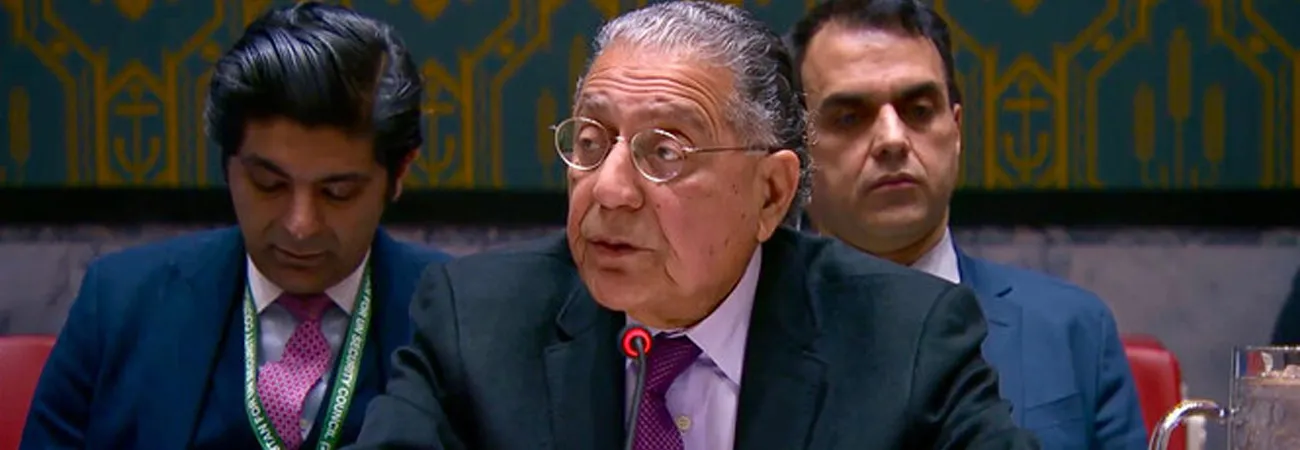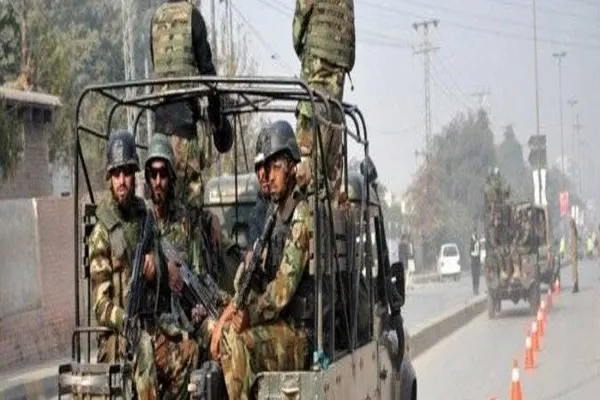i NEWS PAKISTAN
Pakistan has called for global action against militants such as Daesh, the Tehreek-e-Taliban Pakistan (TTP) and the separatist Majeed Brigade outfits, alleging that over two dozen “terrorist groups” are operating from Afghanistan which are a threat to the entire region and beyond. Pakistan’s Ambassador to the UN Munir Akram made the comments during the UN Security Council briefings on “Threats to international peace & security caused by terrorist acts”.
Pakistan’s Permanent Mission to the UN shared the remarks on social media platform X on Tuesday. Pakistan has suffered a surge in militant attacks in its western provinces bordering Afghanistan. The TTP has carried out attacks against civilians and law-enforcers in Khyber Pakhtunkhwa while the Majeed Brigade, a specialized unit of the Baloch Liberation Army, has scaled attacks in Balochistan.
Islamabad has repeatedly urged Kabul to take action against militants that it says are using Afghan soil to launch attacks against Pakistan, a charge the Taliban-led government denies. Pakistan last year conducted cross-border strikes into Afghanistan against alleged militant targets, escalating tensions with its western neighbour.
The social media post said: “While strongly rejecting any imputation that an ISIL-K/Daesh recruitment is taking place inside the country, Pakistan has urged the international community to take greater cognizance of the renewed terrorist threat posed by the TTP, Majeed Brigade and Daesh.”
“He stated in unequivocal terms that over two dozen terrorist groups are operating inside Afghanistan, which is also the ‘main hub for ISIL-K’s recruitment and facilitation,’ as is confirmed by the UN Monitoring Team’s recent report.” Munir Akram pointed out that Pakistan had defeated Al-Qaeda and other militant networks within its borders, adding that the South Asian country continues to confront “terrorist threats” such as the TTP, Daesh and the Majeed Brigade operating from safe havens across the border.
The Pakistani envoy demanded addressing root causes of militancy such as poverty, injustice, prolonged unresolved conflicts, foreign occupation and denial of the right of self-determination to people. “Without addressing the root causes, we can hope for little success if our focus remains restricted to the consequences of such policies,” he maintained.
Akram pointed out that it was unfortunate how counter-terrorism policies have often equated Islam with extremism, adding that such misplaced notions fuel Islamophobia and further radicalization. He condemned “terrorism” in all its forms, saying Pakistan was one of the countries worldwide leading the battle against militancy.
Credit: Independent News Pakistan (INP)









